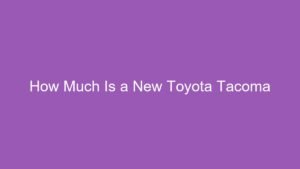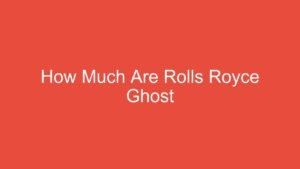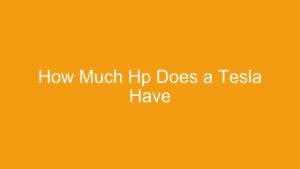
Dreaming of cruising in a brand-new Toyota Corolla? You’re not alone! The Corolla has been a global favorite for decades, renowned for its reliability, fuel efficiency, and excellent value. But when it comes to the crucial question – “How much is a new Toyota Corolla?” – the answer isn’t a single, straightforward number.
Instead, think of it as a range influenced by various factors. This comprehensive guide will walk you through everything you need to know to understand the true cost of a new Corolla, empowering you to make an informed decision and secure the best possible deal.
Contents
- Understanding the Foundation: Manufacturer’s Suggested Retail Price (MSRP)
- What Influences the Price of Your New Corolla?
- Step-by-Step Guide: How to Determine Your Corolla Price
- Step 1: Research the Base MSRP for Your Desired Model Year
- Step 2: Choose Your Trim Level and Add-ons
- Step 3: Factor in the Destination Charge
- Step 4: Estimate Taxes, Registration, and Licensing Fees
- Step 5: Get Quotes from Multiple Dealerships
- Step 6: Consider Your Financing or Leasing Costs
- Step 7: Factor in Your Trade-In (if applicable)
- Tips for Getting the Best Deal on Your New Corolla
- Common Mistakes to Avoid When Buying a New Corolla
- Conclusion
- Related Articles
Understanding the Foundation: Manufacturer’s Suggested Retail Price (MSRP)
At the heart of any new car’s price is the Manufacturer’s Suggested Retail Price (MSRP). This is the price that Toyota recommends its dealerships sell the car for. It’s your starting point, but remember, it’s a suggestion, not a fixed price.
🛒 Recommended Product
While specific figures fluctuate with market conditions, model year, and even regional demand, a new Toyota Corolla typically starts in the low to mid-$20,000 range for its base models. As you add features and move up through different versions, this price will naturally increase.
Key Takeaway: The MSRP is your initial benchmark. Always check the official Toyota website or reputable automotive pricing sites for the most current MSRP figures for the specific model year you’re interested in.
What Influences the Price of Your New Corolla?
The MSRP is just the beginning. Several factors will impact the final price you pay. Understanding these will help you navigate the buying process like a pro.
1. Trim Levels (Versions)
Toyota offers the Corolla in several trim levels, each with a different set of standard features, engine options, and comfort/technology upgrades. Think of these as different “versions” of the same car.
- Base Models: These are the most affordable and come with essential features.
- Mid-Range Trims: Offer a good balance of features and price, often including popular tech and convenience upgrades.
- Higher-End Trims: Provide premium amenities, advanced safety tech, and sometimes more powerful engine options.
The higher the trim level, the higher the MSRP will be. Always research the standard features of each trim to see what truly matters to you.
2. Optional Features and Packages
Beyond trim levels, you can often add individual optional features or packages. These might include:
- Technology Packages: Upgraded infotainment screens, navigation, wireless charging.
- Safety Features: Advanced driver-assistance systems not standard on lower trims.
- Appearance Packages: Special wheels, paint colors, or interior accents.
- Comfort Upgrades: Heated seats, sunroof, premium audio systems.
Each of these additions will increase the final price. Be mindful of what you truly need versus what’s a “nice-to-have.”
3. Destination Charge (A Non-Negotiable Fee)
Almost every new car comes with a Destination Charge (sometimes called a Freight or Delivery Charge). This fee covers the cost of shipping the vehicle from the factory to the dealership.
🛒 Recommended Product
- It’s standardized: The destination charge is the same for all buyers of that model across the country.
- It’s non-negotiable: You cannot haggle this fee down.
- It’s often not included in the advertised MSRP: It’s usually listed separately. Always factor this into your total estimated cost.
4. Dealer-Specific Costs and Markups
This is where things can get a bit more variable. Dealerships have their own costs and may add fees.
- Documentation Fees (Doc Fees): These cover the dealership’s administrative costs for processing paperwork. They vary widely by state and dealership, from under $100 to over $1,000. While often non-negotiable, knowing what’s typical for your area can help.
- Dealer Add-ons/Markups: Some dealerships add their own features (e.g., nitrogen in tires, paint protection, extended warranties, security systems) or simply charge a “market adjustment” above MSRP. These are often highly negotiable or entirely avoidable.
- Regional Advertising Fees: Some areas have an additional fee to cover regional advertising by the manufacturer.
5. Sales Tax, Registration, and Licensing Fees
These are government-mandated fees that depend on your location.
- Sales Tax: Based on the sales price of the vehicle and your state’s tax rate.
- Registration Fees: To register your car with the state.
- License Plate Fees: For your actual license plates.
These can add hundreds or even thousands of dollars to your total cost, so don’t forget them!
Step-by-Step Guide: How to Determine Your Corolla Price
Ready to get a more concrete idea of what a new Corolla will cost you? Follow these steps:
Step 1: Research the Base MSRP for Your Desired Model Year
- Go to the official Toyota website.
- Navigate to the Corolla model page.
- Look for the “Build & Price” or “Compare Trims” section.
- Note down the starting MSRP for the current model year.
Step 2: Choose Your Trim Level and Add-ons
- On the Toyota website, use the “Build & Price” tool.
- Select the trim level that aligns with your needs and budget (e.g., LE, SE, XSE).
- Add any optional packages or features you absolutely want. The website will update the price as you add these.
- Print or save a summary of your configured Corolla, including the updated MSRP.
Step 3: Factor in the Destination Charge
- The Toyota website’s “Build & Price” tool often displays the destination charge at the end of the summary.
- If not, look for it on the official specs page for the Corolla. It’s usually a standard fee, often around $1,000-$1,200, but can vary.
- Add this to your configured MSRP.
Step 4: Estimate Taxes, Registration, and Licensing Fees
- Sales Tax: Multiply your estimated vehicle price (MSRP + options + destination) by your local sales tax rate. You can find this on your state’s Department of Motor Vehicles (DMV) or Department of Revenue website.
- Registration & Licensing: Check your state’s DMV website for estimated fees. These often depend on vehicle value, weight, or type.
- Sum these up to get a rough estimate.
Step 5: Get Quotes from Multiple Dealerships
This is where you find the actual selling price.
- Contact at least 3-5 different Toyota dealerships (both local and slightly further afield).
- Provide them with the exact configuration (trim, options, color) of the Corolla you built online.
- Request an itemized out-the-door price quote. This is crucial! An “out-the-door” price includes all fees, taxes, and the actual selling price of the vehicle.
- Compare these quotes carefully. Look for differences in the selling price, documentation fees, and any added dealer accessories.
Step 6: Consider Your Financing or Leasing Costs
- If you’re financing, your total cost will also include interest paid over the loan term.
- If leasing, your payments will cover depreciation, interest (money factor), and taxes over the lease term.
- Get pre-approved for a loan from your bank or credit union before visiting the dealership. This gives you leverage and a clear benchmark for interest rates.
Step 7: Factor in Your Trade-In (if applicable)
- If you have a car to trade in, research its estimated value on sites like Kelley Blue Book (KBB) or Edmunds.
- Do not discuss your trade-in until you’ve negotiated the price of the new Corolla. Keep these transactions separate to avoid confusion and ensure you get the best deal on both.
Tips for Getting the Best Deal on Your New Corolla
Buying a car can feel overwhelming, but with the right strategy, you can get a great deal.
- Do Your Homework (As You’re Doing Now!): Knowledge is power. Know your desired trim, options, and what a fair price looks like.
- Know Your Budget: Determine your absolute maximum “out-the-door” price and your comfortable monthly payment before you step into a dealership.
- Shop Multiple Dealers: Competition works in your favor. Dealerships know you’re getting other quotes, which encourages them to offer competitive pricing.
- Negotiate the “Out-the-Door” Price: Focus on the total price, not just the monthly payment. This ensures you’re comparing apples to apples across dealerships.
- Be Aware of Dealer Add-ons: Politely decline any unwanted add-ons like paint protection, fabric guards, or extended warranties unless you specifically researched and want them. You can often purchase these more affordably elsewhere.
- Consider the Timing: End of the month, end of the quarter, or end of the model year can sometimes yield better deals as dealerships try to hit sales targets.
- Get Pre-Approved for Financing: This empowers you with a strong alternative if the dealership’s financing offers aren’t competitive.
- Be Prepared to Walk Away: If you feel pressured or the deal isn’t right, don’t be afraid to leave. There’s always another car and another dealership.
Common Mistakes to Avoid When Buying a New Corolla
Steer clear of these pitfalls to ensure a smooth and successful purchase.
- Focusing Only on the Monthly Payment: A dealership can manipulate the loan term or interest rate to achieve a low monthly payment, even if it means you pay significantly more in total. Always focus on the total “out-the-door” price first.
- Not Researching Enough: Going in blind puts you at a disadvantage. Do your research on prices, trims, and common dealer fees.
- Ignoring Hidden Fees: Scrutinize every line item on the purchase agreement. If you don’t understand a fee, ask for a clear explanation.
- Impulse Buying: Don’t let excitement rush you into a decision. Take your time to review everything.
- Falling for Dealer Pressure: Sales tactics can be intense. Remember, you are in control. Don’t sign anything until you’re completely comfortable.
- Forgetting About Insurance: Get insurance quotes for the specific Corolla model you’re considering before you buy. Some models or trims can be more expensive to insure.
Conclusion
Determining “how much is a new Toyota Corolla” is a journey, not a single destination. By understanding the MSRP, the various factors that influence the price, and following a step-by-step approach to research and negotiation, you’ll be well-equipped to find a Corolla that fits your budget and needs.
🛒 Recommended Product
Remember: patience, research, and a clear understanding of your finances are your best allies. Happy car hunting, and enjoy the peace of mind that comes with driving a fantastic new Toyota Corolla!
FAQ
Q. What is the starting MSRP for a new Toyota Corolla?
A. The Manufacturer’s Suggested Retail Price (MSRP) for a new Toyota Corolla typically starts in the low to mid-$20,000 range for the base LE sedan model. This price can vary slightly depending on the specific model year, region, and any standard features updates.
Q. How does the price change across different trim levels of the Toyota Corolla?
A. As you move up through the trim levels (e.g., from LE to SE, Nightshade, XSE, or specific Apex Editions), the price increases significantly. Each higher trim level generally includes more advanced features, improved styling, larger wheels, and enhanced technology, pushing the price towards the mid to upper-$20,000 range, or even into the low $30,000s for top-tier trims.
Q. What is the typical price range for a new Toyota Corolla, including all available trims and body styles?
A. The overall price range for a new Toyota Corolla, encompassing all gasoline and hybrid sedan models, typically spans from approximately $22,000 for the entry-level trims up to around $31,000 or more for the fully loaded, top-of-the-line gasoline or hybrid models before options and fees.
Q. Are there any additional fees or costs beyond the Manufacturer’s Suggested Retail Price (MSRP)?
A. Yes, the MSRP does not include several additional costs. These commonly include a destination charge (also known as a delivery, processing, and handling fee), sales tax, registration and title fees, and potentially dealer documentation fees. Optional accessories or packages also add to the final purchase price.
Q. How much more expensive is a Toyota Corolla Hybrid compared to a gasoline-powered model?
A. Toyota Corolla Hybrid models generally have a slightly higher starting MSRP than their comparable gasoline-powered counterparts, typically adding an extra $1,500 to $2,500 to the base price of a similar trim level. While the initial cost is higher, the hybrid offers significant long-term savings through superior fuel efficiency.
Q. Does the MSRP include optional features or packages for the Toyota Corolla?
A. No, the published MSRP for a specific trim level represents the vehicle’s price with its standard equipment. Any optional features, such as premium paint colors, upgraded technology packages, convenience packages, safety enhancements not included in the standard suite, or dealer-installed accessories, will be added to the MSRP, increasing the final purchase price.
Q. Is the price of a new Toyota Corolla negotiable at the dealership?
A. While the MSRP is a suggested retail price, the final selling price of a new Toyota Corolla can often be negotiable with the dealership. Factors like market demand, current incentives, regional competition, and the time of year can influence the dealership’s willingness to offer discounts. However, some fees like the destination charge and taxes are generally non-negotiable.
Related Articles
How Much Does a Tesla Cybertruck Cost
How Much Does a Tesla Cybertruck Cost? Your Ultimate Guide to Pricing & Purchase The Tesla Cybertruck has captured imaginations with its futuristi…
How Much Is a Tesla
How Much Is a Tesla? Unpacking the Cost of Your Dream EV Dreaming of driving a Tesla? You’re not alone! These innovative electric vehicles have …
Affiliate Disclosure: As an Amazon Associate, I earn from qualifying purchases made through links on this site.















